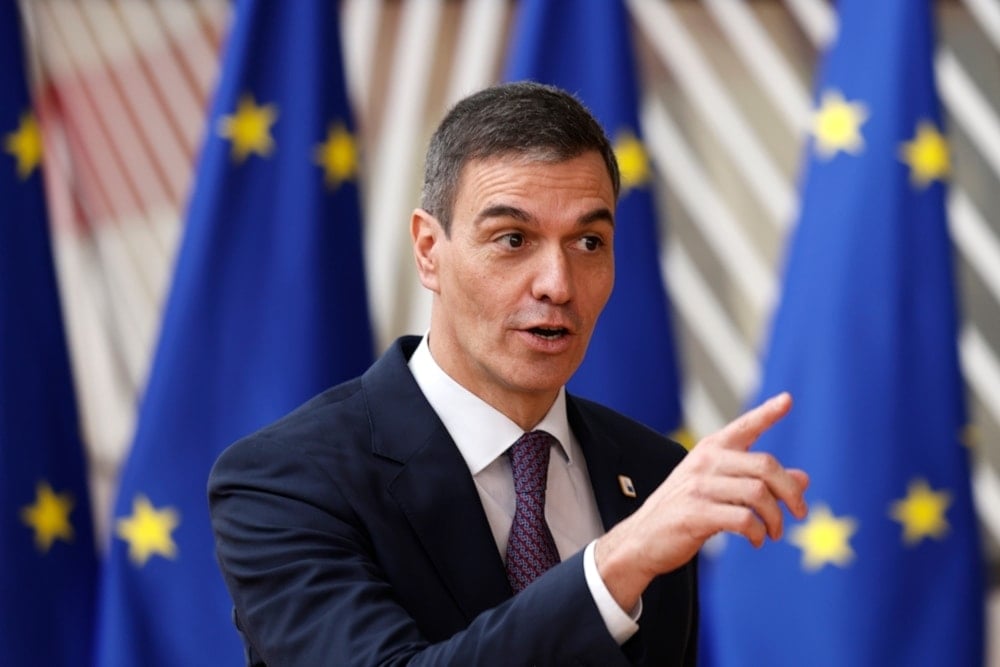Spain rejects NATO's 'unreasonable' 5% defense spending proposal
Spanish Prime Minister Pedro Sánchez opposes NATO's proposal to increase defense spending to 5% of GDP, calling it unreasonable and incompatible with Spain’s welfare goals.
-

Spain's Prime Minister Pedro Sanchez arrives for a European Union Summit in Brussels, Belgium, on March 21, 2024. (AP)
Spanish Prime Minister Pedro Sanchez has publicly rejected a new proposal from NATO to raise defense spending among member states to 5% of GDP, calling the plan "unreasonable" and "counterproductive." The proposal, introduced by NATO Secretary General Mark Rutte in response to demands from US President Donald Trump, seeks to boost contributions from member nations.
Sanchez emphasized that while he does not intend to complicate next week's NATO summit in The Hague, he advocates for a more flexible approach that would either make the 5% target optional or allow Spain to opt out entirely. In a letter to Rutte, he argued that the plan would be incompatible with Spain's welfare priorities and its broader global vision.
"Committing to a 5% target would not only be unreasonable but also counterproductive because it would move Spain further away from optimal spending and would hinder the EU’s ongoing efforts to strengthen its security and defense ecosystem," Sánchez wrote.
Sánchez calls for flexibility ahead of NATO summit
Spain currently allocates about 1.3% of its GDP to defense spending, significantly below NATO's 2% target. The Spanish government has proposed increasing this to 2.1%. In April, Sánchez announced a €10.5 billion industrial and technological plan aimed at reaching the 2% threshold by the end of the year, asserting that "only Europe will know how to protect Europe."
The push for higher defense spending stems from ongoing pressure by Donald Trump, who in January insisted that NATO members should contribute 5% of their GDP. In response, Rutte has called on allies to see the US stance as motivation for unilateral increases in defense budgets.
Rutte’s plan suggests that NATO members commit 3.5% of GDP to direct defense spending and an additional 1.5% to broader security initiatives. He has pointed to positive responses in countries like Spain, Portugal, Belgium, and Italy, arguing that pressure is yielding results.
"I tell them that, well, now I am calling you to ask you to deliver the 2% by the summer, so that collectively we can move considerably north of the 2% because we have to spend much, much more," Rutte said in March.
Despite its current standing, Spain has begun taking steps to modernize its military capabilities. The €10.5 billion plan includes industrial and technological upgrades aligned with NATO goals, but within the framework of Spain’s social and economic priorities. A NATO official confirmed that discussions about the new defense investment plan are still ongoing among allies.
Read more: After NATO, EU pressure, Spain to send Patriot missiles to Ukraine

 3 Min Read
3 Min Read











